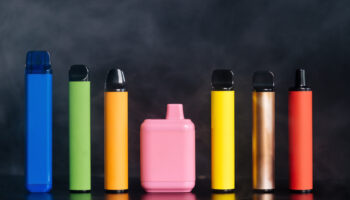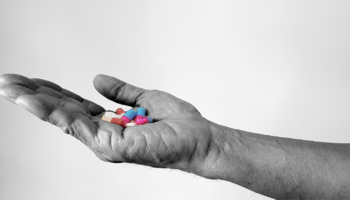How to Help a Loved One With Addiction Recovery
The Nystrom & Associates provider consulted for this article on how to help someone with addiction recovery is Lori Lachelt, Clinical Supervisor, Addiction Services, LADC.
It isn’t easy watching your loved one suffer the effects of an addiction. Addictions can cripple anyone – young people, old people, people with disabilities, people with other mental health diagnoses. You may feel helpless as your loved one continues to depend on addictive substances. That is okay, and likely, you are not alone. So, what can you do to help your loved one?
What’s the Difference Between Casual Substance Use and Addiction?
Sometimes, it is difficult to distinguish if substance use is becoming an issue. If someone is casually using a substance, they won’t have negative side effects, and if they do have negative effects, they will stop or change their pattern of use. However, if they continue using despite negative side effects, they likely have a substance use disorder. Some of the consequences of an addiction include relationship issues, physical or mental health concerns, giving up hobbies and activities they have always enjoyed, and work issues.
Lori Lachelt, Clinical Supervisor of Addiction Services, suggests asking yourself these questions:
- Have they gotten into physically hazardous situations due to their use?
- Have they ended up in the hospital or detox because of their use?
- Are they having legal concerns because of their use?
If you’ve answered “yes” to any of these questions, your loved one may be in the grip of an addiction. So, what should you do, as their loved one, to support them?
Related: What is Substance Use Disorder
How to Support Someone With an Addiction
Supporting someone with an addiction can be difficult because you don’t want to see them struggling. Loving and supporting your loved one but not excusing behaviors is important. It could also be helpful to attend a family program with your loved one if they are attending treatment. Being direct and loving with your loved one is important to effectively communicate with someone who is addicted.
Related: Am I Addicted? Symptoms and Treatment Options
When Should I Encourage a Loved One to Seek Professional Help?
The sooner, the better. If your loved one is struggling with an addiction, the sooner they engage in services, the better it is for them. Sometimes, the hardest part is convincing them to seek help. Try to express your love and concern without judgment. Let them know you're there for them, no matter what. If they're resistant, consider involving other family members or friends in an intervention.
Common Misconceptions about Addiction
There are a few misconceptions about substance use that are important to remember. Substance use disorder is a disease that changes the way someone’s brain is wired. Addiction isn't a choice and can cause people to take part in “bad behaviors” because the brain tricks them into believing that it’s the only way to survive. Lori says,
“We have to address behaviors and remember that there is a good person in front of us who is struggling.”
Related: 5 Ways to Prevent Substance Abuse
A Word From Nystrom & Associates
If you or a loved one is struggling with addiction, never hesitate to reach out! Nystrom & Associates provides many resources such as inpatient, outpatient, and residential treatment. Call 1-844-NYSTROM or request an appointment online to get started!





